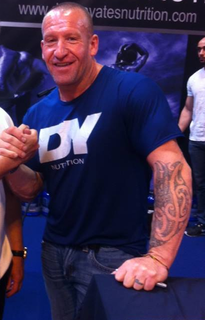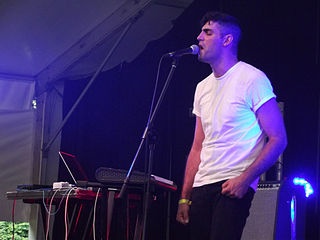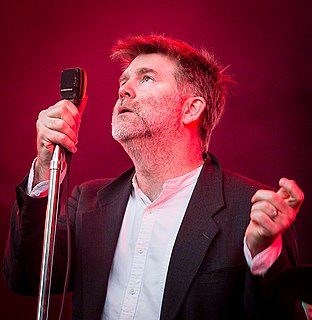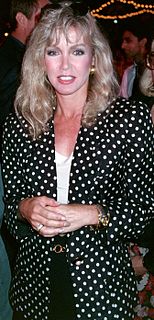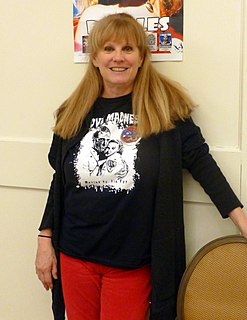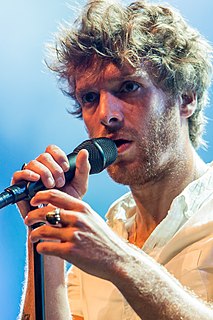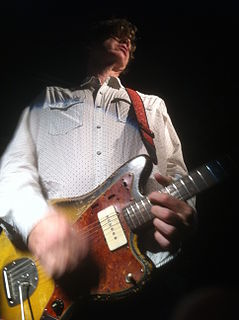A Quote by Dorian Yates
When I was a teenager, you were either a punk, a skinhead or a mod, or you weren't on the scene. Me and my mates were skinheads.
Related Quotes
We never fit in completely to [the punk] scene because we were writing love songs that were heartfelt and endearing. Some of the punks didn't know what to make of us, but I finally realized that was what made us punk. We sang what we meant, from the heart, and didn't worry about what anyone was going to think.
The 1970s was probably the most exciting decade to be a teenager, from discovering Little Richard at the end of the 1960s to glam rock to punk rock to electro music. So much happened in that 10-year span. There were so many musical revolutions. Some were happening at the same time. You had disco going on behind punk. You had Michael Jackson. You had the Sex Pistols.
I had to get a driver's license and drive to St. Louis to find the punk-rock scene that was happening there. And there was a punk-rock scene. It was sweet. It was real. It was like everywhere else in the county. It was a handful of people who were feeling the same pull, and, of course, it was like the Island of Misfit Toys in Rudolph the Red-Nosed Reindeer [1964]. Just the freaks, the fags, the fat girls, the unbelievable eccentrics .
My vision of punk rock was these dudes who were spitting on the audience and moshing. That's why I kind of left that scene. Then I see all these people around my same age or between 17 and 25 that were making music themselves in their own town. They weren't just singing, but creating. I see them putting out this music where there are tons of women involved in the scene and involved in the bands.
The Ramones were a great bunch of guys. They were very quiet, very shy. They were a little in awe of the filmmaking process, probably because we started at 7 a.m. I do remember the very first day of shooting, I met them and did the scene in the bedroom where Joey sings to me, and they were all scattered around my bedroom in my little fantasy scene. That was the first scene we shot of the movie. That scene is kind of a strange way to start a movie. "Okay, get undressed, and these weird guys in leather jackets and ripped jeans are going to sing to you."
There were just moments of the punk scene and I realized that I had to capture it. There was also this photographer in our preschool - I went to a Montessori school in Baltimore, Maryland - and they had this photographer come and take all these incredible photographs. They looked like they were from Life magazine.
